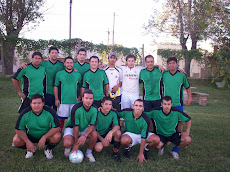Bruno Bettelheim (August 28, 1903 – March 13, 1990) was an Austrian-born American child psychologist and writer. He gained an international reputation for his views on autism and for his claimed success in treating emotionally disturbed children.
Bettelheim subscribed to and became a prominent proponent of the "refrigerator mother" theory of autism — the theory that autistic behaviors stem from the emotional frigidity of the children's mothers — which enjoyed considerable influence into the 1960s and 1970s in the US. However, some indications suggest that he later changed his thinking.[1] Bettelheim's 1967 book The Empty Fortress: Infantile Autism and the Birth of the Self, which promoted the "refrigerator mother" theory of autism, enjoyed wide success, especially in the popular press. The book played a key role in ensuring that the "refrigerator mother" theory soon became the accepted explanation for autism in popular culture and, to a considerable extent, in professional circles.
Among numerous other works, Bruno Bettelheim wrote The Uses of Enchantment, published in 1976. In it he analyzed fairy tales in terms of Freudian psychology. The book won the U.S. Critic's Choice Prize for criticism in 1976 and the National Book Award in the category of Contemporary Thought in 1977. Bettelheim discussed the emotional and symbolic importance of fairy tales for children, including traditional tales at one time considered too dark, such as those collected and published by the Brothers Grimm.
After Bettelheim's suicide (1990) it emerged that he had falsified some of his academic credentials. At the same time, a number of his former patients came forward with accusations of neglect. Bettelheim's posthumous personal and professional reputation suffered considerably as a result.
Bettelheim subscribed to and became a prominent proponent of the "refrigerator mother" theory of autism — the theory that autistic behaviors stem from the emotional frigidity of the children's mothers — which enjoyed considerable influence into the 1960s and 1970s in the US. However, some indications suggest that he later changed his thinking.[1] Bettelheim's 1967 book The Empty Fortress: Infantile Autism and the Birth of the Self, which promoted the "refrigerator mother" theory of autism, enjoyed wide success, especially in the popular press. The book played a key role in ensuring that the "refrigerator mother" theory soon became the accepted explanation for autism in popular culture and, to a considerable extent, in professional circles.
Among numerous other works, Bruno Bettelheim wrote The Uses of Enchantment, published in 1976. In it he analyzed fairy tales in terms of Freudian psychology. The book won the U.S. Critic's Choice Prize for criticism in 1976 and the National Book Award in the category of Contemporary Thought in 1977. Bettelheim discussed the emotional and symbolic importance of fairy tales for children, including traditional tales at one time considered too dark, such as those collected and published by the Brothers Grimm.
After Bettelheim's suicide (1990) it emerged that he had falsified some of his academic credentials. At the same time, a number of his former patients came forward with accusations of neglect. Bettelheim's posthumous personal and professional reputation suffered considerably as a result.


Que buen trabajo!!!
ResponderEliminar